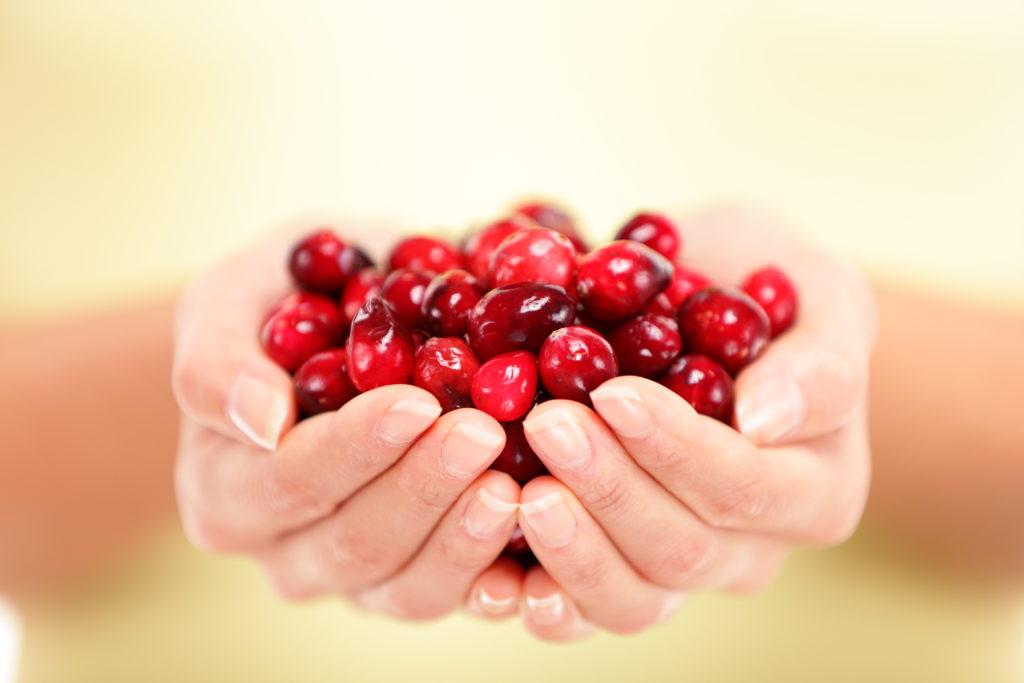
I tend to be hesitant to report on studies of single foods doing amazing things (because many do), but this piece of research still caught my eye.
So, what did this group of researchers from the University of East Anglia find?
Well, they wanted to study the effects of cranberries specifically because they are known to have plenty of flavonoids – healthy compounds which have been shown to have multiple positive effects. This was also studied in an older population of 50- to 80-year olds. Right up my street then. The goal was also to see if it could help with any effects of dementia which is becoming severe in many societies with ageing populations.
They therefore tracked 60 cognitively healthy participants over a 12-week period. Half of the participants consumed powdered cranberries equivalent to 100 grams of fresh cranberries (about a cupful) and the other half consumed a placebo.
What were the results?
Well, the results were pretty impressive. They showed that the cranberry group significantly improved memory function of everyday events (known as episodic memory) but also that the brain exhibited higher levels of oxygenation and enhanced neural functioning. On top of this the cranberry group also exhibited a significant circulating LDL (“bad” cholesterol) decrease.
So, all in that’s top news for cranberries. Whether that is just cranberries is open to interpretation – it is likely the combination of flavonoids that are found in cranberries – but cranberries are particularly rich in them and so it could do you a whole bunch of good. But do remember to keep a healthy diet in general because that will likely have the largest benefits. But if in doubt a cupful of cranberries will do no harm and likely do an awful lot of good!

Andy Habermacher
Andy is author of leading brains Review, Neuroleadership, and multiple other books. He has been intensively involved in writing and research into neuroleadership and is considered one of Europe’s leading experts. He is also a well-known public speaker speaking on the brain and human behaviour.
Andy is also a masters athlete (middle distance running) and competes regularly at international competitions (and holds a few national records in his age category).
Reference
Emma Flanagan, Donnie Cameron, Rashed Sobhan, Chloe Wong, Matthew G. Pontifex, Nicole Tosi, Pedro Mena, Daniele Del Rio, Saber Sami, Arjan Narbad, Michael Müller, Michael Hornberger, David Vauzour.
Chronic Consumption of Cranberries (Vaccinium macrocarpon) for 12 Weeks Improves Episodic Memory and Regional Brain Perfusion in Healthy Older Adults: A Randomised, Placebo-Controlled, Parallel-Groups Feasibility Study.
Frontiers in Nutrition, 2022; 9
DOI: 10.3389/fnut.2022.849902
More Quick Hits
How Sleep Helps Your Brain Manage Fear
Quick HitsDaily brief research updates from the cognitive sciences leep on i” is common advice for many reasons. Often to consolidate thoughts and help boost creativity. This is a well-known effect. We also know that sleep is the time that helps to...
Video games can boost children’s intelligence
Quick HitsDaily brief research updates from the cognitive sciences ell, this is not the answer many of us would expect, and it goes against other logic of spending more time doing other things such as reading or socialising with friends...
Just how many people get COVID brain?
Quick HitsDaily brief research updates from the cognitive sciences here are many questions still open about COVID and the brain. There is no doubt that long COVID exists, and this can have dramatic impacts on people’s lives. But just how...
Brain networks and losing weight – successfully or not
Quick HitsDaily brief research updates from the cognitive sciences s weight loss all in the mind? Well, with the danger of oversimplifying a complex topic, this latest research shows it is, and shows precisely how and with what networks. So,...
Reversing aging – with poo!
Quick HitsDaily brief research updates from the cognitive sciences ho wouldn't want to age better - well the results of an unsual study are in and the results are promising and may make many of you who are aging prick up your ears. The...
Brisk walking slows biological aging
Quick HitsDaily brief research updates from the cognitive sciences f you want to age better, then walk quicker, or those who walk quicker, age slower. That is the result of a recent study of 400,000 UK adults mapped to genetic markers of age...






